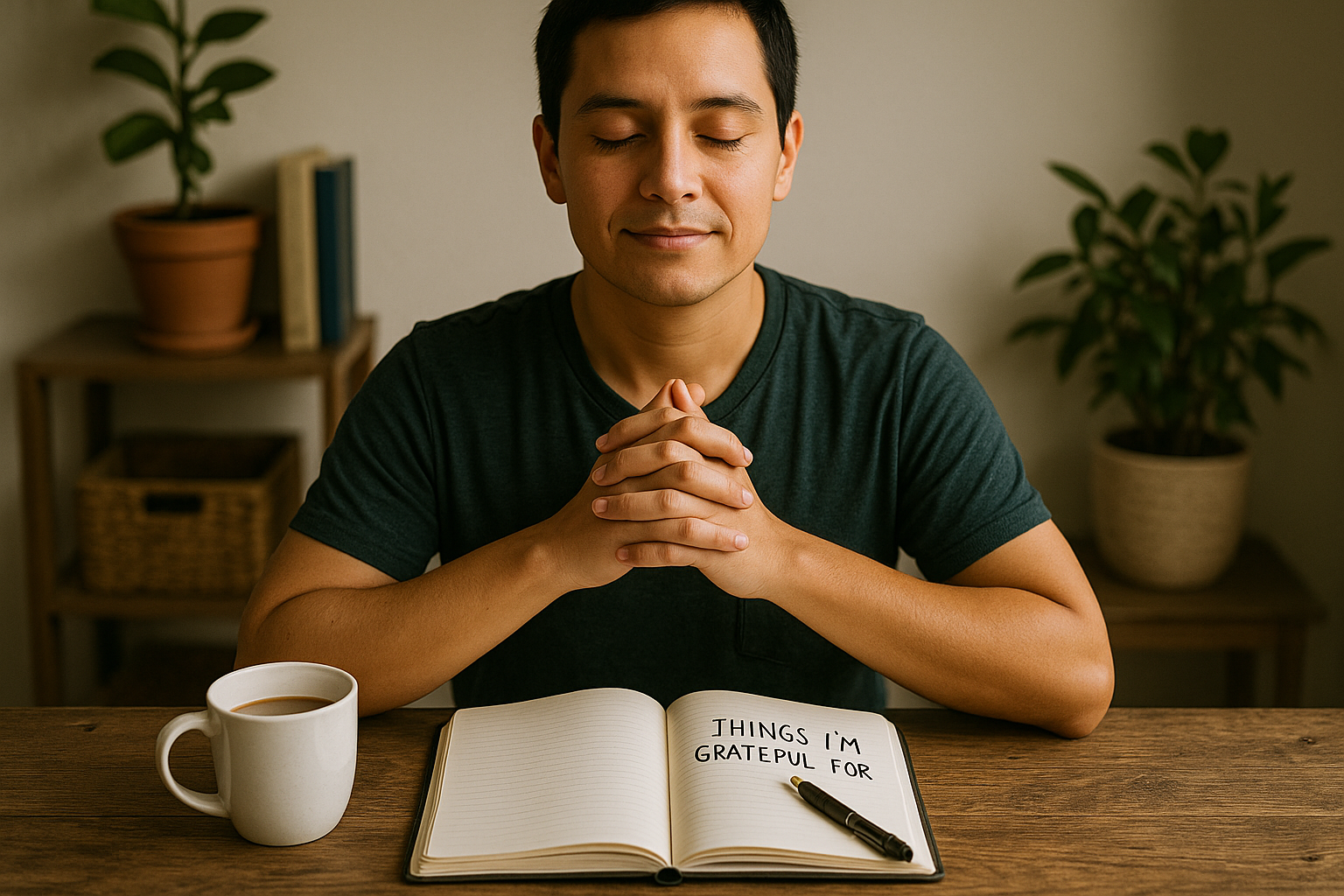Gratitude is often viewed as a feel-good emotion, but its power goes far beyond that. Practicing gratitude regularly can sharpen your focus, reduce stress, and accelerate your personal development.
In this article, we’ll explore how gratitude impacts your mindset and give you practical ways to weave it into your daily routine.
What Is Gratitude, Really?
Gratitude isn’t just about saying “thank you.” It’s the intentional act of recognizing and appreciating the good in your life—big or small.
It can look like:
- Acknowledging progress in a project
- Feeling thankful for a meaningful conversation
- Noticing the beauty of a quiet moment
- Appreciating your health or a basic comfort
It’s about where you choose to place your focus.
How Gratitude Affects the Brain
Research shows that gratitude has measurable effects on the brain:
- Activates the brain’s reward system (dopamine and serotonin release)
- Reduces activity in the amygdala (associated with stress and fear)
- Increases resilience to negative emotions and mental fatigue
- Improves sleep and overall mood
In short: gratitude shifts your brain toward balance, clarity, and well-being.
1. Gratitude Helps You Focus on What You Have
We live in a world of constant comparison. Social media, advertisements, and cultural expectations often make us feel like we’re not enough.
Gratitude breaks that cycle by refocusing your attention on what’s already working in your life.
Instead of:
- “I don’t have enough time.”
Try: “I’m grateful for the progress I made today.”
Instead of:
- “I’m not successful yet.”
Try: “I’m thankful for how much I’ve grown this year.”
This mindset fuels confidence and motivation.
2. It Reduces Mental Clutter and Overthinking
A gratitude practice creates mental space by quieting your inner critic and reducing rumination.
When your mind feels foggy or scattered:
- Pause
- Write down 3 things you’re thankful for
- Reflect on why they matter to you
You’ll often find a shift in clarity and emotional tone within minutes.
3. It Builds Emotional Resilience
Gratitude doesn’t mean ignoring hardship—it helps you navigate it with perspective.
Grateful people tend to:
- Bounce back from setbacks faster
- Reframe challenges as learning opportunities
- Experience less burnout and anxiety
- Strengthen their relationships through appreciation
Gratitude gives you inner stability, especially when life feels uncertain.
4. It Strengthens Personal Growth
When you focus on what’s going well, you’re more likely to keep going. Gratitude reinforces your efforts, progress, and small wins.
Try this:
- After completing a task, write: “I’m proud of myself for ___.”
- Reflect weekly on 3 ways you’ve grown recently
- Keep a “gratitude + growth” journal where you list lessons learned and things you’re thankful for
Over time, this builds identity-level change: “I’m someone who grows, even through struggle.”
5. Simple Gratitude Habits to Start Today
You don’t need to meditate on a mountain or write long letters. Start small and stay consistent.
Here are a few ideas:
- Gratitude journaling: Write 3 things you’re grateful for every morning or night
- Verbal gratitude: Tell someone “I appreciate you for ___”
- Gratitude reminders: Set a phone alert with a message like “Pause. What’s one good thing right now?”
- Gratitude walk: Take a short walk and mentally list things you’re thankful for
Even 2 minutes a day can rewire your brain over time.
Final Thought: Gratitude Is a Daily Decision
You won’t always feel grateful. But you can choose to look for it—especially on hard days.
Gratitude is a lens that sharpens your vision. It helps you see progress where you once saw problems. It turns enough into abundance. It reminds you that personal growth isn’t just about doing more—it’s also about noticing more.
Start today. Name one thing you’re grateful for. Write it down. Say it out loud. Let it ground you—and guide you forward.

